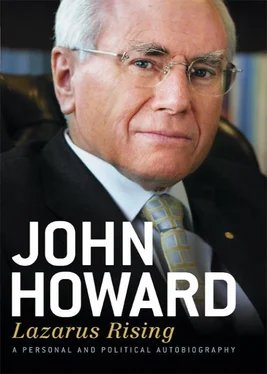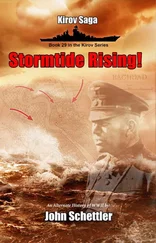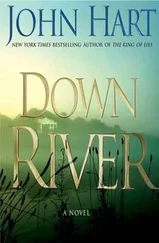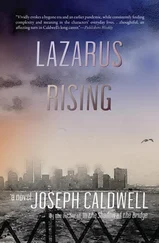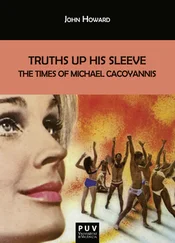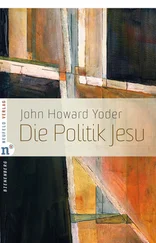Early on 2 June 1987, Ian McLachlan telephoned me in Canberra to say that he was having absolutely nothing further to do with the Joh campaign. McLachlan’s flirtation with Joh had hurt us a lot. He was a credible figure. No end of effort had been made to encourage him to endorse the federal coalition. Yet he had stubbornly refused, saying that he didn’t think that we had the bottle to take the tough decisions needed if we got into government.
Alexander Downer, who had only been elected in 1984, had three months earlier publicly offered to vacate his very safe seat of Mayo to make way for McLachlan as a Liberal candidate. It was a big thing for Downer to do. He had his heart set on a long political career but was motivated by his deep affection for the Liberal Party and driven by his alarm at the spectacle of disunity presented by the Liberal and National parties. There had also been the Carrick offer.
Whatever had been his prevarication in the past, by 2 June McLachlan had become quite angry. He told me, after a meeting with them, that the Queenslanders had done no serious work. They had no policies to speak of. His disillusionment gave me some hope. It was sorely needed.
The Queensland Premier had been in California when Hawke announced the election and was thus caught quite unprepared.
John Stone also telephoned me that same day. He had secured a spot on the Nationals’ Senate ticket for Queensland. John would be the main architect of Joh’s taxation policy and was the one person who gave some nationwide credibility to the Queensland push. John had always been quite an admirer of Bjelke-Petersen. In his call he hinted that the Queenslanders knew that the ‘Joh for PM’ campaign could not succeed. He said that they wanted to see me as soon as possible, to discuss ways of working together to defeat the Hawke Government.
So it was agreed that Joh and his senior National Party people would see me at my home in Sydney later that evening. They had been in Melbourne during the day, where the abortive meeting with Ian McLachlan had taken place.
Accompanied by Tony Eggleton, Liberal federal director, and Grahame Morris, my chief of staff, I went to Sydney for one of the more remarkable political meetings of my entire life. ‘They', to whom Janette referred, did not include the man himself. At the last minute Bjelke-Petersen, who had come to Sydney, had decided to sit it out, either at the airport or at some hotel. In the lounge room of my home, I found three emissaries from the north. They were Sir Robert Sparkes, the formidable president of the Queensland Nationals, his likeable and friendly deputy, Charlie Holm, and the state director, an advertising man called Fred Maybury. They hurriedly tried to explain Joh’s absence. Then we began our discussion about what was to happen.
They were an interesting trio. Holm was a traditional Country Party man from rural Queensland. ‘He’s the sort of man you would buy a horse from,’ remarked my wife later. He was seen by most people as an honest broker. Sparkes had played a major role in building the National Party organisation and had a good political brain. He had never been enthusiastic about the ‘Joh for PM’ campaign and only signed up quite late in the piece, when he realised that the momentum had gathered so strongly that it could not be ignored. Fred Maybury, given his advertising background, was completely obsessed with market research. He had been an enthusiast for the Canberra push by Bjelke-Petersen from way back.
They hadn’t come to apologise but to acknowledge, grudgingly, that the game was up. They accepted that the Liberal and National parties, facing an election on 11 July, needed to cobble together as much unity as possible, even though it was the 11th hour.
Maybury had brought an armful of research material with him. He plonked it on the lounge room floor. Given that the die was already cast, I didn’t quite see the point of this. The bizarre feature of the evening was that he kept telling all of us that it would have been possible for Joh to have made it, if it hadn’t been for what he saw to be the perfidy of the NSW Nationals.
He was right, but I was the last person to think that the NSW Nationals had done the wrong thing. To me, they had been heroes. For all the political skills and strategic planning of which the Queensland Nationals were alleged to have been capable, they had ignored the most fundamental step needed to achieve their goal. They had not enlisted the support of the National Party organisation throughout Australia for the ‘Joh for PM’ campaign. Without this they never had any hope. Doug Moppett and his colleagues had outsmarted them.
The real rabbit killer to the ‘Joh for PM’ campaign had been delivered at a meeting in my office in Canberra just a few weeks earlier. Then an agreement was struck, not only to maintain the decades-old joint Senate ticket between the Liberal Party and the National Party in New South Wales, but to implement a strategy that would cripple Joh in New South Wales.
That meeting was attended by Doug Moppett, the chairman of the NSW Nationals, his state director, Jenny Gardiner, Bronwyn Bishop, president of the NSW division of the Liberal Party, Dr Graeme Starr, the state director of the Liberals, as well as Tony Eggleton, Ian Sinclair and me.
Moppett had shown genuine strength in the face of the Queensland push. From the beginning he had been scathing about what his northern confrères had in mind, and contemptuous of the way in which they had undermined his federal leader, Ian Sinclair. He and Jenny Gardiner shared the historic warmth of the NSW Nationals towards cooperation with the Liberals.
I had always strongly supported close cooperation with the Nationals. The reaffirmation of the joint NSW Senate ticket was very important. Equally important was our agreement that if any ‘Joh for PM’ Nationals stood against sitting Liberals, then the NSW Nationals would campaign against the Joh Nationals in support of sitting Liberal candidates. In similar vein, the Liberal Party would support sitting Nationals and Nationals endorsed by the party organisation in New South Wales against any ‘Joh for PM’ Nationals. This tight electoral pact was designed to shut out the Queenslanders. It succeeded.
Although Sparkes and Holm said very little, Maybury bitterly complained about what the NSW Nationals had done. It was quite extraordinary, because he was venting his spleen to someone who thought that the NSW Nationals had behaved honourably and in the best traditions of close coalition harmony. I thought that Doug Moppett, in particular, had displayed tenacity and strength where many others melted away.
We talked at our Wollstonecraft home for about an hour and a half. The message out of the meeting was clear. The ‘Joh for PM’ campaign was finished, but they thought it had all been rather unfair, because if the rest of the National Party had come on board it might have been successful!
Given all that had happened over the preceding few months, I felt considerable relief. There still remained the awkward issue of a meeting between the Queensland Premier and me. We all knew that without that meeting and a declaration from the two of us that we would work together, there was no hope of stitching up even a façade of unity for the election campaign. They wanted me to go and see Joh in Brisbane in the next few days.
After Sparkes, Holm and Maybury left, I held a council of war with my two Canberra colleagues and Janette. Despite all the rough edges, and the possibility that I would be criticised for going cap in hand to someone I had called a ‘wrecker', we all agreed that it was more important to achieve the public outcome we wanted than worry about personal dignity. To have any hope at all in the election we needed to put as much of the Coalition disunity behind us as possible. We could not even begin to do this unless Bjelke-Petersen and I had been seen to have mended fences.
Читать дальше
